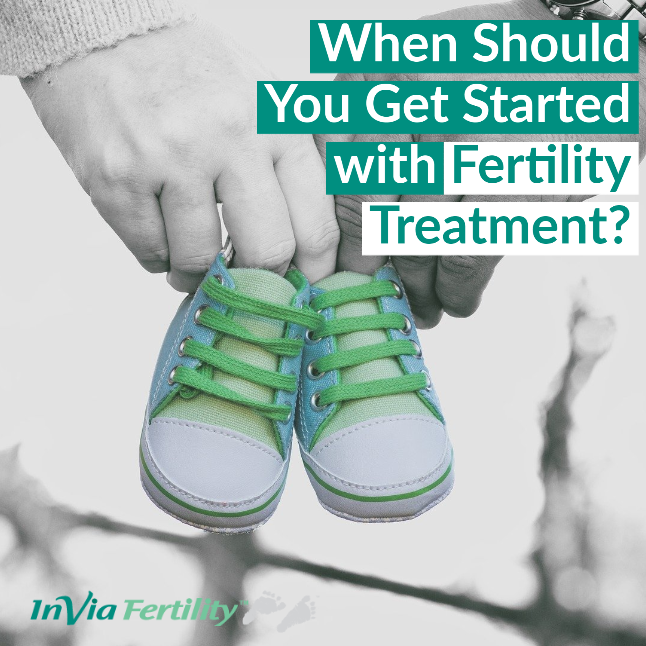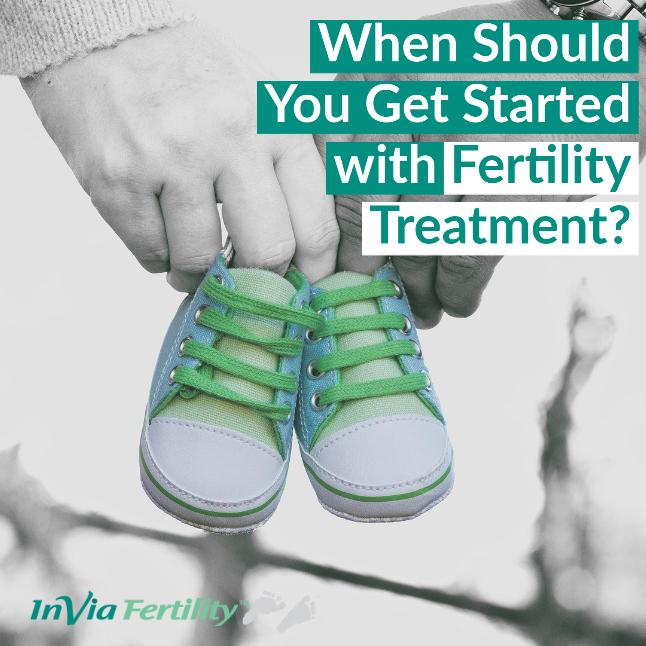We are experiencing a very high volume of calls and messages and ask for your patience. We will answer your portal messages within 48 hours.
We are experiencing a very high volume of calls and messages and ask for your patience. We will answer your portal messages within 48 hours.

 When people first start trying for a baby, they are often surprised if pregnancy doesn’t happen right away. The truth is that even a healthy young couple at peak fertility will usually need to try for a few months before conceiving. Evidence shows that the chances of getting pregnant within the first month of trying are about 30%, with 75% of couples conceiving within six months and about 90% conceiving within a year.
When people first start trying for a baby, they are often surprised if pregnancy doesn’t happen right away. The truth is that even a healthy young couple at peak fertility will usually need to try for a few months before conceiving. Evidence shows that the chances of getting pregnant within the first month of trying are about 30%, with 75% of couples conceiving within six months and about 90% conceiving within a year.
Still, you might have concerns about your chances of getting pregnant. Should you seek a fertility consultation even if you haven’t been trying to get pregnant very long? Here are a few reasons why you may want to consider it.
You’re LGBTQ+ or Single – First, let’s state the obvious: same-sex couples, transgender parents, or single intended parents will want help and advice from a fertility specialist to get pregnant! With a fertility specialist’s help, you can learn about your options for building your family, from gamete donation (eggs or sperm) to gestational surrogacy. At InVia, we can also help you understand the legal aspects of having a baby while LGBTQ+ or single, such as how to establish parental rights when using a gestational surrogate.
You’re 35 (Or More) Years Old – The age of the woman/partner assigned female at birth is the most important factor to consider when deciding whether to get started with fertility treatment. After the age of 35, most people with ovaries will experience reduced ovarian reserve (number of eggs remaining in the ovaries) and reduced egg quality. Age may also impact other factors, such as frequency of ovulation, and increase the risk of conditions such as endometriosis or uterine fibroids which can also interfere with conception. Women over 35 who have been trying to conceive for six months without success should seek a fertility consultation.
Men/people assigned male at birth also experience a decline in fertility as they age, though this is not as pronounced as it is in women. Whenever infertility or sub-fertility is suspected, we recommend men receive a complete fertility evaluation to rule out any problems—especially men over the age of 45 or so.
You Had Cancer Treatment in the Past – Cancer treatment saves lives, but can have an adverse effect on your fertility. Fortunately, we can evaluate your chances of getting pregnant (or getting someone else pregnant) via assisted reproductive technology (ART). If you were able to undergo fertility-preserving treatment before your cancer procedures, that’s even better. Either way, we at InVia have a track record of helping cancer patients find their pathway to pregnancy.
You Already Know About a Pre-Existing Condition – If you are under 35 but you already know you have a condition such as polycystic ovary syndrome (PCOS), endometriosis, or male-factor infertility (possibly caused by a severe childhood infection, such as mumps), you should consult a fertility doctor as soon as you want to start trying for a baby.
In fact, if you strongly suspect you have a pre-existing condition—for example, you are a woman who has the irregular periods, acne and excessive body hair which can signal PCOS—it can’t hurt to come in for a consultation.
You Have Experienced Recurring Pregnancy Losses – If you have become pregnant several times but have suffered repeated miscarriages, please know we are sorry for your loss and understand how heart-breaking your situation must be. Scheduling an appointment with a fertility specialist can help you determine what may be causing this problem, and what treatment options may be available.
You Are Under 35 and Want to Get Pregnant Someday – If you are under the age of 35 (especially if you have ovaries) and know you will need to put having children on hold for a while, you may want to consider having sperm or eggs frozen to increase your chances of successfully having a baby later. A fertility specialist can help you understand your options.
You Are Under 30 and Have Tried for a Year – As mentioned above, most healthy people will be able to conceive within a year of starting to try. If you and your partner are under 30 and have been having unprotected sex for more than 12 months with no luck, it’s time to give us a call (or schedule an appointment online). Our team of board-certified fertility doctors are ready to help at any of our four convenient Chicago-area locations.

Entire Website © 2003 - 2020
Karande and Associates d/b/a InVia
Fertility Specialists
